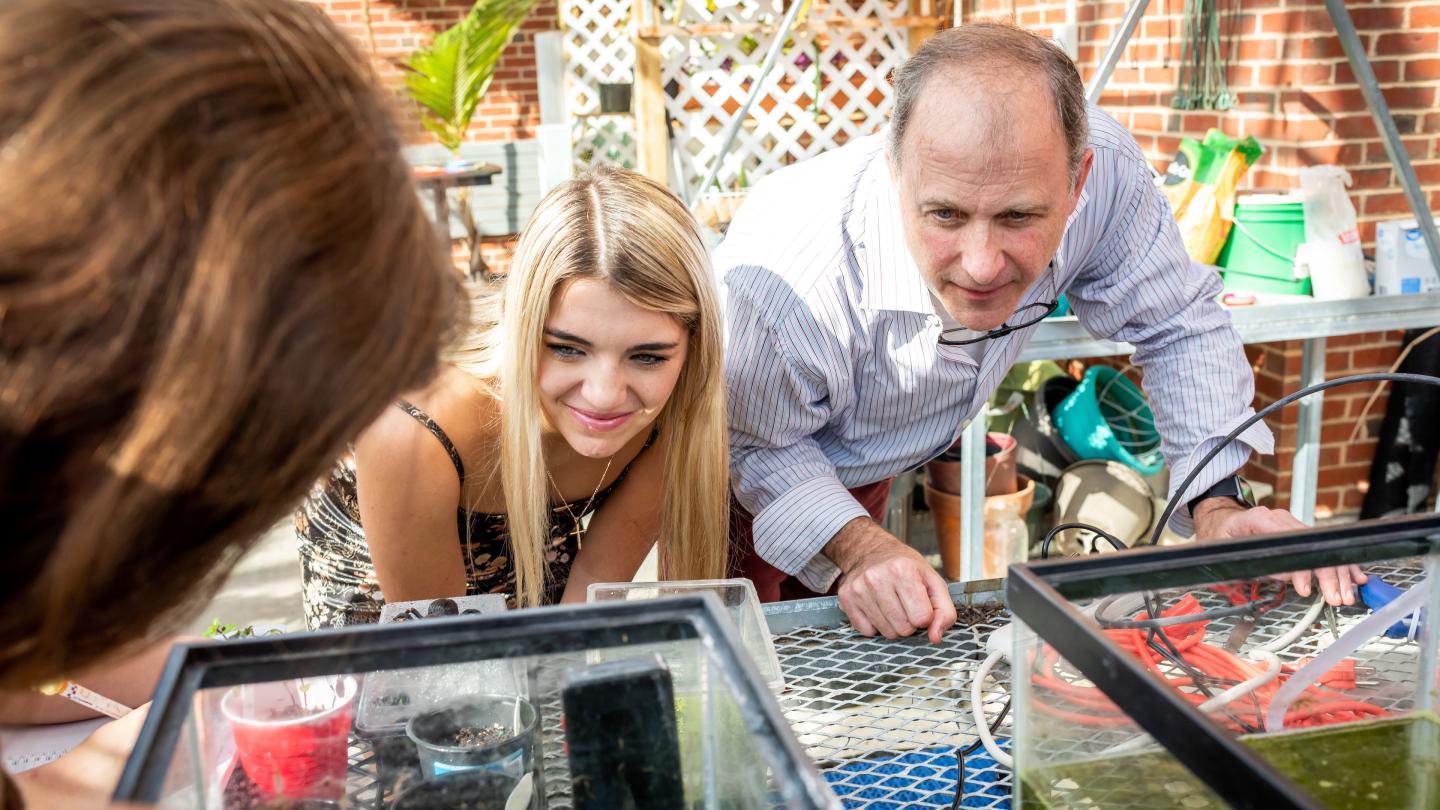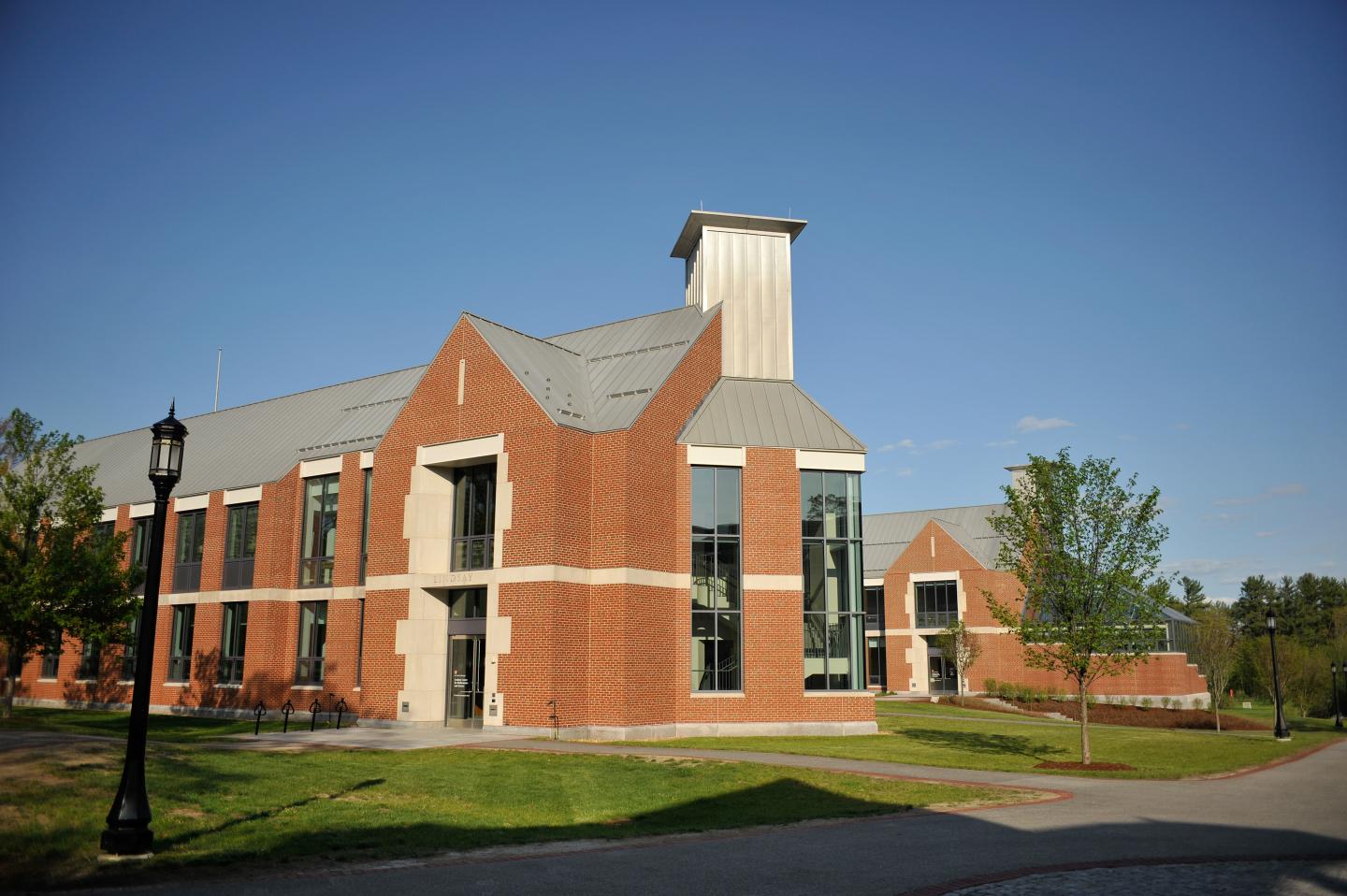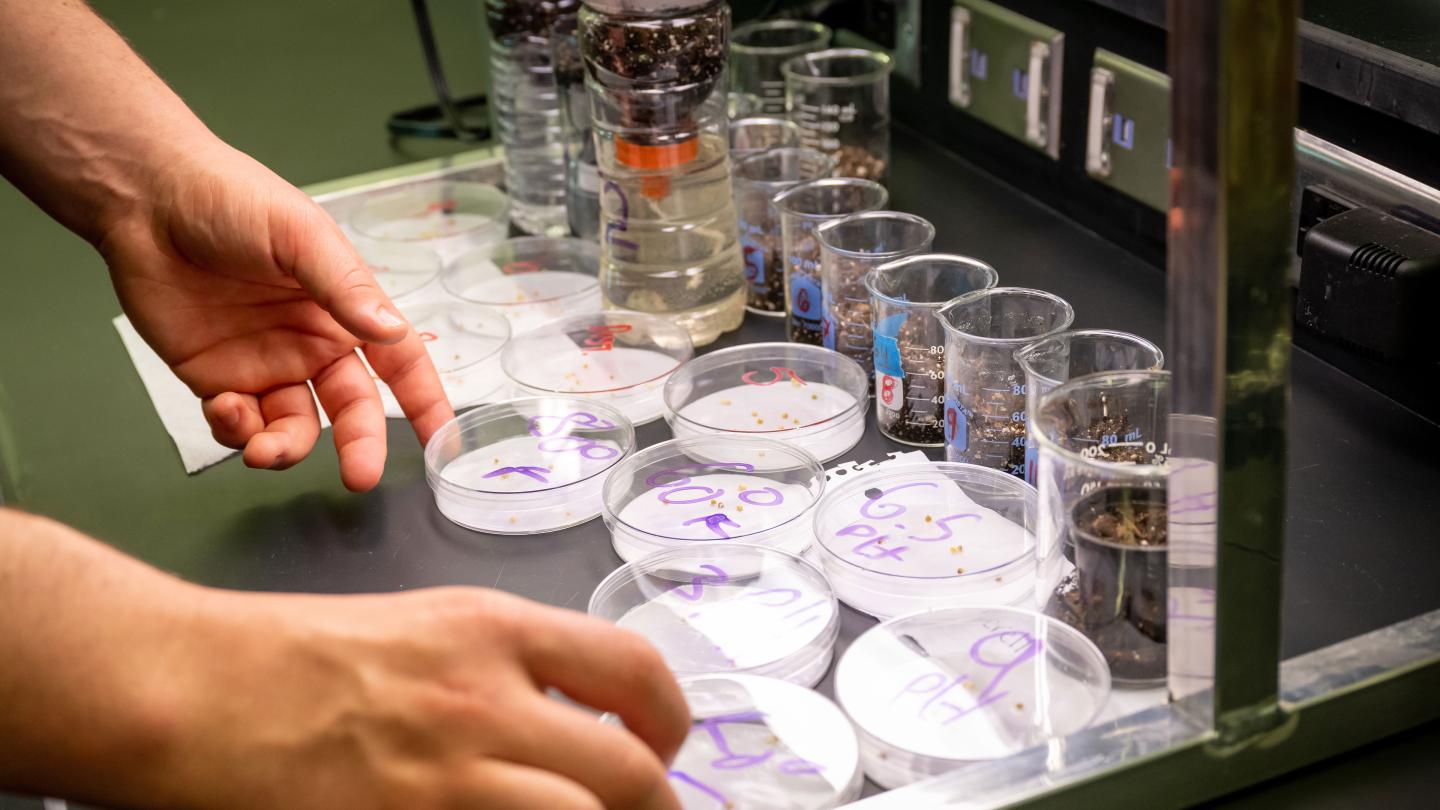One of the things Science Teacher Mark Hermano loves about physics is that you can see it in action. And he helps SPS students in his Physics First and Honors Physics classes see it, too, with hands-on experiments.


Our mission is to inspire our students to joyfully and skillfully pursue scientific literacy through active inquiry as an essential part of the broader integrated curriculum at St. Paul’s School. The Science Department feels strongly that an understanding of scientific principles is essential for responsible citizenship.
We feel that creativity is an essential aspect of the scientific process. We encourage students to realize that rote knowledge of physical laws is secondary to the ability to design an experiment or recognize connections among phenomena. We teach a conceptual appreciation of the behavior of nature and leverage it throughout the core sequence of Physics First, Chemistry and Biology.
Our department develops a respect for data and written scientific communication through laboratory exercises and project work. We use computers, fabrication facilities, the observatory, School grounds and field trips to provide students with experiences and perspectives of the natural world and the changing abilities of humanity.
Physics First is designed for all entering Third Form students and forms the first of a three-year foundation series. Classical studies of motion, forces, energy, electricity, magnetism, and sound and light are coordinated with the impact that such knowledge has had in defining the modern technological world. Students explore the beauty and simplicity of the fundamental laws that explain our universe. Since experimentation is key to all science, great emphasis is placed on laboratory work. In the Fall Term, students focus on Newton’s Laws, momentum and energy, and the interplay between forces and their impact on linear motion. Students are encouraged to ask questions and create projects to seek answers while learning to work together in small groups, allowing for the free flow of creative ideas. In the Winter Term the course progresses to circular motion, force, motion, vibrations, waves and electrostatics. Spring Term finds students venturing into the study of electromagnetic fields, electrical circuits, motors, generators, light and optics. The final assessment in Physics First is a group project based on real-life applications of a physical problem, with a formal poster presentation and peer review.
Prerequisite: Introduction to Astronomy
This course builds upon the Introduction to Astronomy course and is focused upon the nature of stars in our universe as we know it. Students will study the makeup and activity of our Sun; how astronomers use spectra to determine the properties and components of stars; the evolution of low- and high-mass stars; and the spectacular stellar deaths of supernovae and black holes. Students also are encouraged to take Galactic Astronomy, though Stellar Astronomy is not a prerequisite.
Prerequisite: Co-enrollment in Algebra 2 Honors or higher and recommendation from Physics First teacher.
Honors Chemistry is the second course in the three-year foundational series. This course is an introductory chemistry course that will cover an expanded curriculum of Chemistry. The final grade in Honors Chemistry will consist of the term work, cumulative exams and lab practical. Topics include properties of matter, bonding, chemical periodicity, stoichiometry, thermochemistry, kinetics, equilibria, acids and bases, and oxidation-reduction.
Prerequisites: One year of biology and one year of chemistry.
This year-long advanced science course investigates the fresh and saltwater ecology of the world’s watery biomes. During the Fall Term, using the natural resources of our campus, students will examine the different aquatic habitats that are inherent to New Hampshire by studying energy flow, nutrient cycling, pollution and ecosystem stability in our own lakes, ponds and streams. The Winter portion of this course examines the open ocean in all its vastness, depth and power. Creatures of the open ocean, including marine mammals and deep-sea inhabitants, will be at the heart of the term’s study. Mammalian diving physiology, sharks, skates and rays also will be an important part of our studies. During the Spring Term, our course examines the marine environments closer to shore, including coral reefs, mangroves, estuaries and rocky coastlines. Students will learn how to identify fish, study the interconnectedness of the sea and the land and investigate the complex relationships found in each of these biomes. Human influence and fisheries management will be major themes throughout the year. Students enrolled in Marine Biology will have the unique opportunity to participate in a multi-day field trip to Marine Lab in Key Largo, Florida or The Island School in Eleuthera, Bahamas. Both trips include a hands-on study of coral reefs, mangroves and saltwater ecosystems along with an in-depth look at the sustainability of our natural aquatic resources.
In this course, classical artificial intelligence topics such as knowledge representation, search algorithms, and learning expert systems are explored. Students study the possibilities for understanding language, thought and consciousness. Students also learn the basics of programming and become proficient at developing recursive problem-solving and search programs.
Prerequisite: Computer Programming using Arduino‑C or Computer Programming using Java or permission of the Science Department.
This open-ended course will give students the time and expertise to prepare for external and in-house competitions and hackathons. This is a self-directed course that is project-oriented and driven largely by student interests. Competitions may include desktop programming contests, a Martian rover simulator, robot dance, robot line-following, robot sumo wrestling, robot maze navigation, robot soccer and robot firefighting. For competitions, the objectives are well-known ahead of time and students are expected to show up with a working robot. For hackathons, no prior preparation is necessary, and students learn about the problem(s) to be solved at the start of the event, which may last from a few hours to 1-2 days. Additionally, interested students will have the opportunity to design and create competitions of their own making. Collaborative team-building skills also will be developed. Students in this course will be expected to work independently on competitions of their own choosing.
One of the things Science Teacher Mark Hermano loves about physics is that you can see it in action. And he helps SPS students in his Physics First and Honors Physics classes see it, too, with hands-on experiments.
The heart of the STEM curriculum at St. Paul’s School, the Lindsay Center offers learning spaces for ecology, physiology, robotics, astronomy chemistry, physics, math and biology — all interspersed with independent study spaces and fully equipped laboratories.
The building also is home to northern New England’s only NOAA Science-on-a-Sphere classroom, a solar observatory, tropical greenhouse, and a Foucault pendulum. Take a virtual tour!


See a sample of science classes you can take.